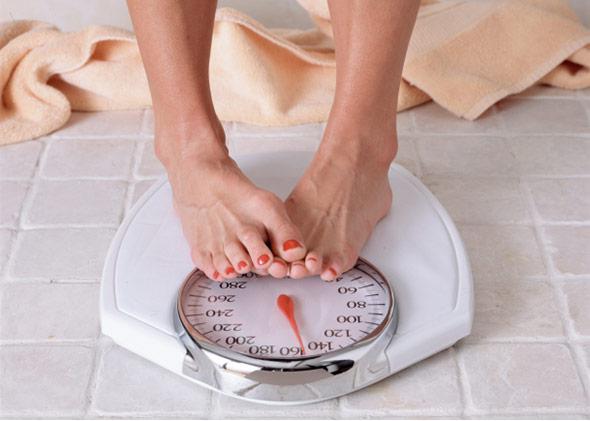This question originally appeared on Quora, the best answer to any question. Ask a question, get a great answer. Learn from experts and access insider knowledge. You can follow Quora on Twitter, Facebook, and Google Plus.
Answer by Caroline Zelonka:
The headache. Constant pounding, all day long, even in your dreams. If I ever needed to take my pulse, I wouldn’t have to touch my wrist. I could simply count the heartbeats in my temples.
Then there is the feeling of constant lightheadedness combined with a spacey Am I really here? feeling of disconnection. The first time I tried alcohol, it reminded me of this. Dizzy spells from time to time, but you learn to anticipate and manage them.
You are hyperaware of food. If someone unwraps a sandwich in the back of the classroom, you can smell it. If you’re in a car and get a passing glimpse of a fast-food billboard, you become instantly distracted. You know the true meaning of the term food porn. Some anorexics become obsessed with cooking and recipes; I tried to avoid anything food-related altogether. When you’re starving, an unexpected Pizza Hut commercial can really throw you for a loop.
The mental and physical effort required to stay on track often means other problems greatly diminish in importance. Especially social problems. If your friends don’t save a seat for you at lunch, well, that’s good because you don’t need to be around them and their unimaginably decadent tuna sandwiches anyway.
You also have to maintain some mental reserves for the times you need to be sneaky. You planned to skip the family dinner and eat an apple in your room, but then your relatives dropped in with a casserole and now your presence at the table is required. As is at least trying the casserole. And you can’t just undo the damage by running stairs after the meal because tonight is choir practice or some such thing.
Just worrying about how you’re going to socially engineer the whole deal is exhausting in itself. You have to manage people and perceptions in addition to your own willpower. A useful skill, actually, but it comes at a price and at the age I was (a very young teen) it’s something that could have waited.
Being anorexic also feels very lonely. Avoiding temptation usually means avoiding other people, and after awhile, those people (especially your school friends) will move on and seem to forget about you. If you’re really lucky (insert sarcasm here), you’ll gain a reputation as a weirdo, helping repel new friends and ensure won’t even be considered for that spot at the lunch table.
You might also begin feeling like it is your fate to be an outcast, and even adopt the messed-up notion that it’s because you can’t enjoy what normal people take for granted—friends, family time, socializing, food.
Actually, I take that last part back. You really enjoy your food, even the sad items that make up your daily diet. Watered-down oatmeal with skim milk and saccharin? The creamiest of comfort foods! A big bowl of air-popped popcorn seasoned with garlic salt? Like I’ve been transported to Tuscany! A chicken neck? Best part of the chicken! (This is true, it’s not very hearty but the neck meat is delicious. The neck also the best option for the anorexic whose mother insists he or she eat at least one piece of chicken.)
There’s also a lot of tracking and record-keeping. That one bite of casserole goes toward your daily food allotment. Mine was 500-600 calories, and my food diaries are full of entries like “1 bite mashed potatoes,” “2 M&Ms,” “1/4 slice bread.” I’d also try to match calories ingested with calories burned, so if I had a 100-calorie breakfast, I’d schedule a 1-mile walk afterward so I could keep the ledger balance at zero.
Here is an entry from one of my food diaries. I ate a lot of air-popped popcorn and oatmeal per the prevailing “high fiber, low fat” diet wisdom at the time.
I was very young when I went through my anorexic phase (age 11 until about 14, hence the loopy adolescent handwriting), and so it took me a while to realize the greater implications. I do not feel my disease was spurred by an abnormal urge to be thin. Initially, I tried “going on a diet” because it seemed like a fun and teenage-y thing to do. (“You’ll have so much more energy! Your hair will be bouncy and glossy!”) I continued with it because it took my mind off my problems and yearnings by replacing them, literally, with a higher-order hunger.
I can’t speak for everyone, but people like to paint anorexics with a wide brush. “They’re victims of the fashion industry and their unrealistic expectations! Quick, hide the Barbie dolls!” As a pre-adolescent girl, sure, I was curious about beauty and fashion and all that, but I certainly wouldn’t have walked around with a constant headache for so many years if anorexia wasn’t fulfilling some other need.
How did I get out of it? Mostly, it had to do with schoolwork. Once I entered ninth grade, and grades started mattering for college, I realized I couldn’t maintain this level of dietary restriction without also restricting my academic potential. And I made a few good friends in high school who helped me come out of my shell.
I did, after a while, become a compulsive exerciser, but that’s a story for another day.
More questions on Quora:
